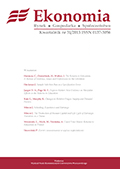

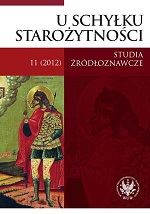
Keywords: wybory biskupów; episcopal election; rzucanie losów; bishop
This paper makes reference to Robert Wiśniewski’s article concerned with the resignation from the practice of episcopal election by lot, apparent in Late Antiquity. This shift is puzzling, given the fact that New Testament offers the example of Matthias thus elected as the apostle replacing Judas (Acts 1: 26). Wiśniewski explains this circumstance predominantly by the preeminence of bad connotations and associations with fortune-telling and divination. However, in the Vita Euthymii 45, Cyril of Scythopolis states that the monks, who were opposed to the decrees of the Council of Chalcedon, followed the example described in the Acts and cast lots in order to take a decision on entering into communion with the pro-Chalcedon bishops. The author does not see anything wrong in the method used by the monks and approves it wholeheartedly, considering the outcome as a sign of Divine Providence. Therefore, in all probability, the discontinuation of the procedure in Late Antiquity did not result from any associations with pagan rites or gambling; it was rather due to the fact that there had already existed a different, and well-entrenched, form of episcopal election in Christian tradition, in that particular period.
More...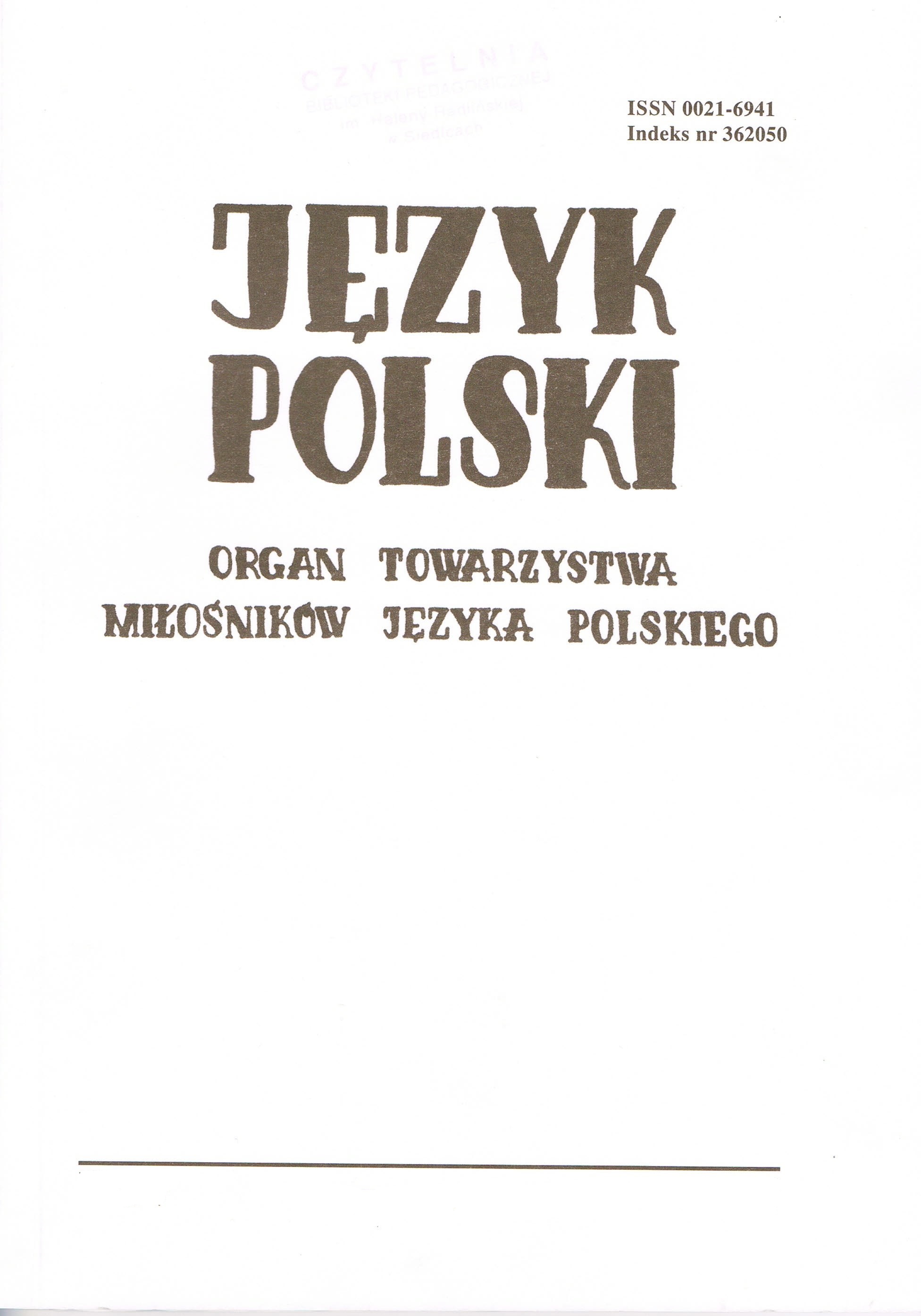
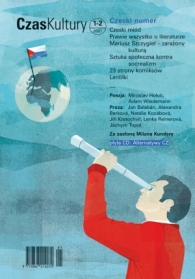
Keywords: national identity; multiculturalism; collective identity; Czech Republic
The author reflects about his personal identity in the light of the Czech national identity, and the other way round. A bitter-sweet collection of anecdotes about everyday life in the Czech Republic, leading to a cosmological concept of coexisting opposites as the principle for the existence of the world.
More...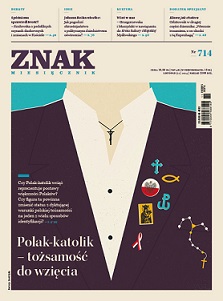
Keywords: Duch-Dyngosz; tożsamość; identity; katoli; catholic
More...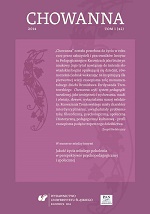
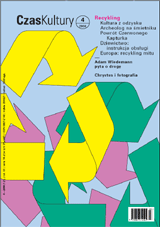

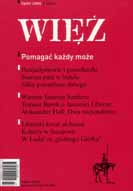
W każdym człowieku ubogim trzeba dostrzec istotę ludzką, która pragnie być zauważona i uszanowana, która chciałaby móc decydować o swoim losie, która ma zawsze jakąś historię, ma rodziców, dzieci, ma jakieś marzenia, tęsknoty, pomysły, ma nam od siebie także coś do dania.
More...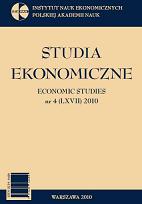
Keywords: book review; unemployment
Book review
More...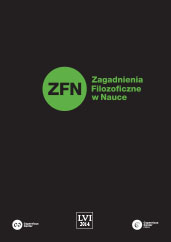
Review of: Wojciech P. Grygiel, Stephena Hawkinga i Rogera Penrose’a spór o rzeczywistość, Copernicus Center Press, Kraków 2014, ss. 412.
More...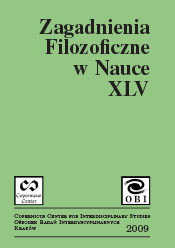
Review of: Andrea Albini, Oroscopi e cannocchiali. Galileo, gli astrologi e la nuova scienza, Grottaferrata (Rm): Avverbi Edizioni 2008, ss. 256
More...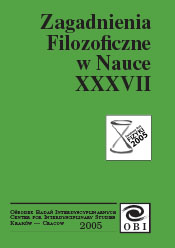
Review of: Alan Sokal, Jean Bricmont, Modne bzdury. O nadużwaniu pojęć z zakresu nauk ścisłych przez postmodernistycznych intelektualistów, Prószyński i S–ka, Warszawa 2004, ss. 280.
More...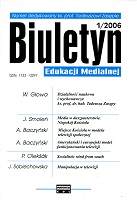
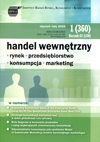
Keywords: nawyki żywieniowe; młodzież; badania ankietowe
Cel artykułu: ocena nawyków żywieniowych młodzieży ponadgimnazjalnej z Nowego Sącza. Rodzaj wykorzystanej metodologii badawczej: badania ankietowe przeprowadzono w 2016 roku wśród 125 osób. Narzędzie badawcze stanowił kwestionariusz ankiety, składający się z pytań odnoszących się do wybranych zachowań żywieniowych. Do analizy wyników badań wykorzystano test niezależności chi-kwadrat Pearsona.Główne wyniki badań: przekonanie o zdrowym odżywianiu się jest zróżnicowane ze względu na płeć i typ szkoły. Płeć determinuje częstotliwość spożywania kolacji, ilość płynów wypijanych codziennie (w tym spożycie napojów gazowanych), a także częstość spożywania mięsa oraz ryb. Natomiast spożywanie drugie-go śniadania, jak ilość płynów wypijanych codziennie, ma związek z typem szkoły.Wnioski: w badanej populacji występuje niskie spożycie ryb, produktów mlecznych, a także małej ilości płynów; równocześnie nadmierne spożywanie napojów gazowanych oraz słodyczy. Implikacje praktyczne: wyniki badań wskazują na konieczność wprowadzenia edukacji żywieniowej wśród młodzieży w celu kształtowania prawidłowych nawyków żywieniowych. Kategoria artykułu: badawczy
More...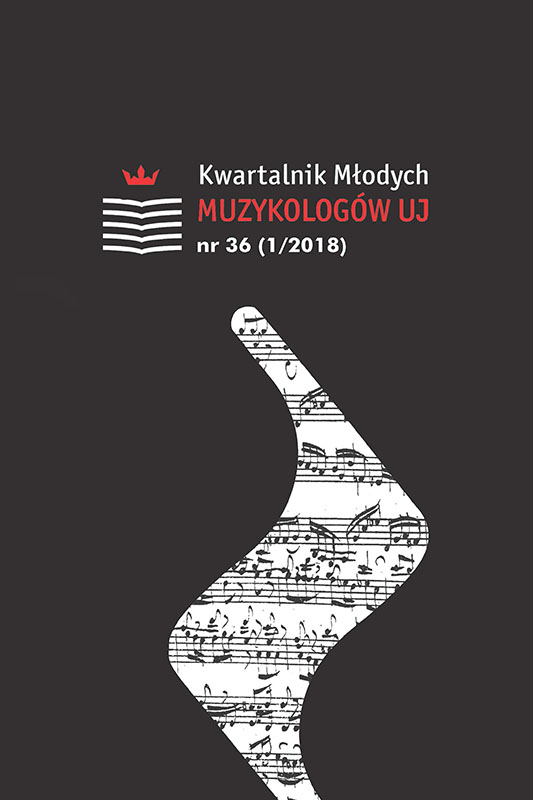
Keywords: Canto fratto; Benedicamus Domino; Bernardines;liturgical manuscripts;
The Archive of St Joseph’s Convent in Kraków contains a collection of musical manuscripts, which have not been studied before. Among books of liturgical use, such as graduals and antiphonaries, there are also small cantionals, full of canto fratto repertoire. The majority of these sources originate from the Convent of Bernardine Nuns in Kraków; however, there are also at least two manuscripts from the Convent in Wilno. The aim of this paper is to present canto fratto repertoire of Benedicamus Domino found in the 18th and 19th century liturgical manuscripts from the Convent of Bernardine Nuns in Kraków. The author indicates sources of studied melodies based on the wide range of liturgical manuscripts from the 18th and 19th centuries – especially from convents of Bernardine Nuns in Poland, as well as from the Convent of Benedictine Friars in Staniątki – and compares it to the dispersal of canto fratto settings of ordinarium missae. Finally, the paper presents complete index of Benedicamus Domino melodies in the annex.
More...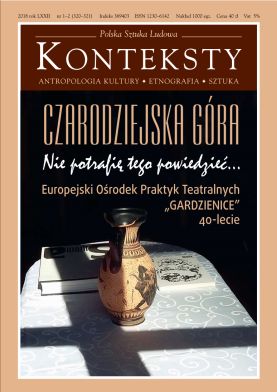
Keywords: Gardzienice
Staniewski’s production of Wesele – a major Polish modernist play by Stanisław Wyspiański – is the starting point for the interview. The conversation, then, deals with the themes of madness and derangement. The motif of the wedding is observed in some earlier works of “Gardzienice” and the difficulty of finding a language adequate for describing the work of the company is mentioned. Wiśniewski points out certain duality that underlies the character of Staniewski himself. Next, the interview focuses on the extent the present form of the European Centre for Theatre Practices “Gardzienice” is a realisation of the potential rooted in a more provocative dimension of Staniewski’s approach. It seems that the gesture of dissent against the surrounding reality of the time is still crucial for the founding myth of the company. The acquisition of knowledge is an imminent part of the actions undertaken by “Gardzienice” and for this reason the relations between the research and the productions is discussed. The conversation attempts to define a distinction between the origins of the ensemble and its present condition and analyses the discussion of Gardzienice’s approach to the creative process and the evolution of the performance itself. Finally, Staniewski wonders whether Wyspiański’s ‘Wesele’ may be treated as a profound play and thus be inscribed in a universal context.
More...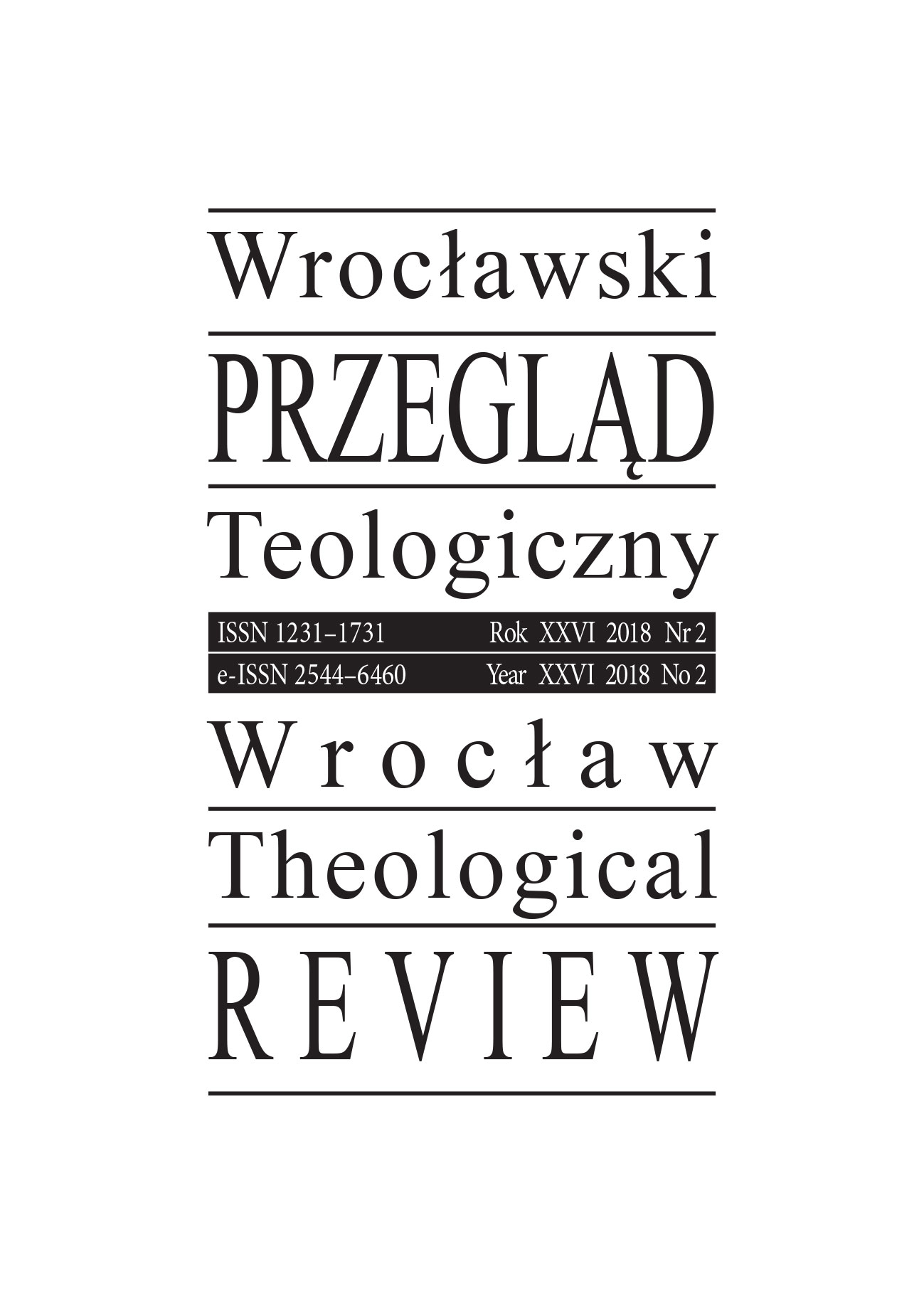
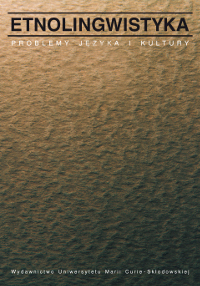
Keywords: ideas among German youth; European values; cannon of European values; system of values of modern societies; sociological research; linguistic analysis
More...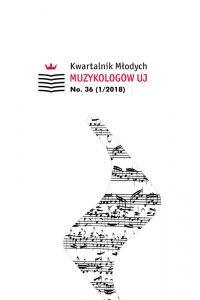
Keywords: Canto fratto; Benedicamus Domino; Bernardines; liturgical manuscripts
The Archive of St Joseph’s Convent in Kraków contains a collection of musical manuscripts, which have not been studied before. Among books of liturgical use, such as graduals and antiphonaries, there are also small cantionales, full of canto fratto repertoire. The majority of these sources originate from the Convent of Bernardine Nuns in Kraków; however, there are also at least two manuscripts from the Convent in Wilno. The aim of this paper is to present canto fratto repertoire of Benedicamus Domino found in the 18th and 19th century liturgical manuscripts from the Convent of Bernardine Nuns in Kraków. The author indicates sources of studied melodies based on the wide range of liturgical manuscripts from the 18th and 19th centuries—especially from convents of Bernardine Nuns in Poland, as well as from the Convent of Benedictine Friars in Staniątki—and compares it to the dispersal of canto fratto settings of ordinarium missae. Finally, the paper presents complete index of Benedicamus Domino melodies in the annex.
More...